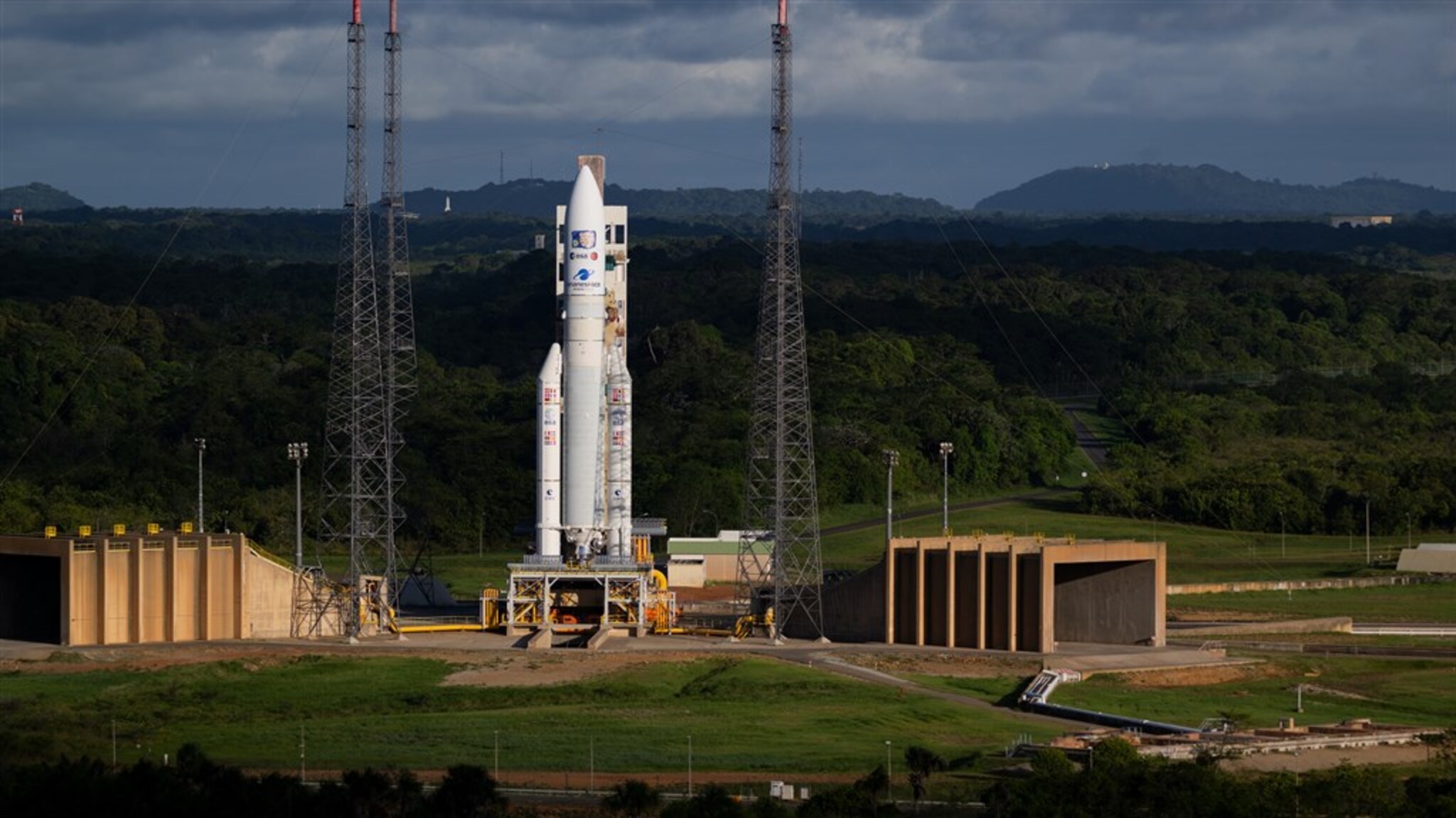The European Space Agency has determined that the risk of lightning at the launch site in French Guiana is too great. The next possibility is tomorrow afternoon at 2.14pm NST.
thick snow crust
At the top of the launcher is the Jupiter Icy Moons Explorer (juice), which should fly to Jupiter. About 100 moons orbit Jupiter. Three of them (Ganymede, Callisto and Europa) have a surface of a thick crust of ice, with liquid water underneath. If so, then maybe life is possible there, or maybe life was possible there in the past.
To reach Jupiter, the probe must make a long journey through the solar system. The probe orbits the Sun in ever-increasing orbits and uses gravity to gain enough speed to cross.
He must reach Jupiter in 2031, after which he will fly to the moon Ganymede in 2034. There the mission will end. The probe will hit there in 2035, so the plan is, when all the fuel has been used up. It is the first time that a satellite has orbited a moon other than our own.
The Dutch touch
The probe has a Dutch touch: TU Delft has, among other things, built an instrument with which it can precisely control flight within 100 meters of where the satellite is flying and at what speed. As a result, more can be said about gravity around Jupiter.
TU Delft also built an instrument that measures the distance from the ship to Jupiter and its moons. This should help map elevation differences on the moons.







